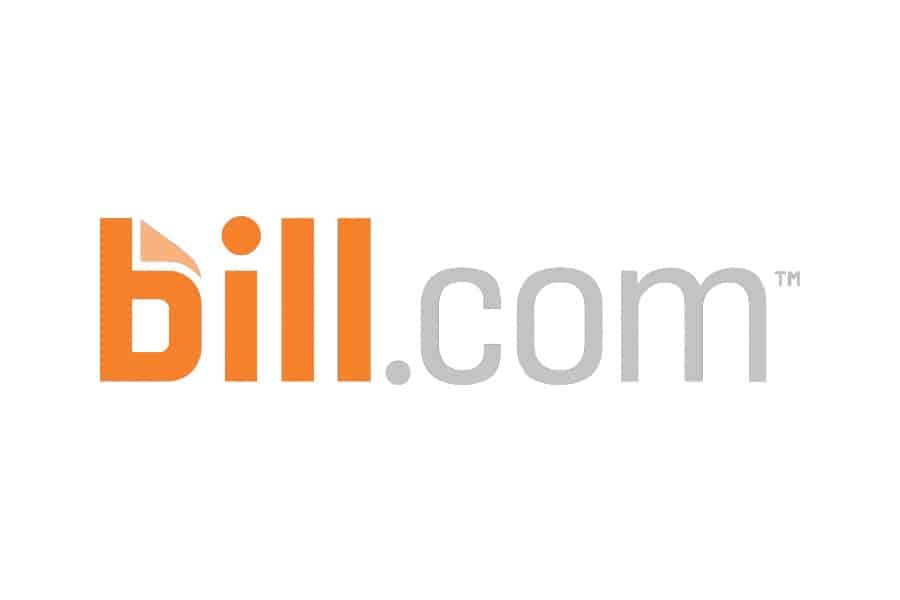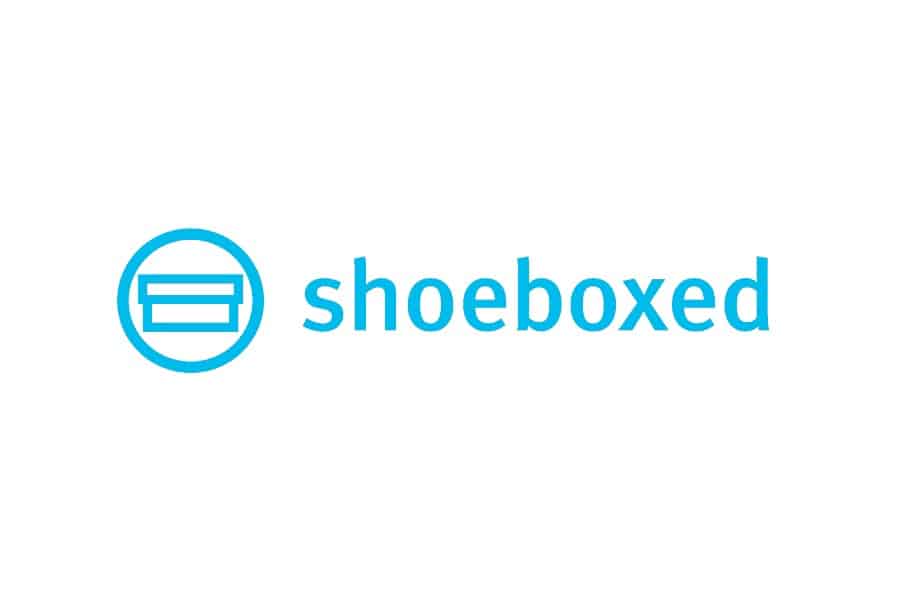
QuickBooks Online has a more robust feature set, including payroll, inventory management, and financial statements, while Solopreneur focuses on basic accounting, like invoicing and expense tracking.
- QuickBooks Online is great for most small and midsize businesses (SMBs) needing a comprehensive double-entry accounting solution, including those with employees.
- QuickBooks Solopreneur is ideal for individuals managing a one-person business, such as freelancers, gig workers, and independent contractors.
The biggest factor for deciding between QuickBooks Online vs Solopreneur is whether you have employees or need to generate a balance sheet. If either applies, then QuickBooks Online is better. However, if you manage your business on your own and only need simple tools for tracking income, expenses, and cash flow, choose Solopreneur.
We are driven by the Fit Small Business mission to provide you with the best answers to your small business questions—allowing you to choose the right accounting solution for your needs. Our meticulous evaluation process makes us a trustworthy source for accounting software insights. We don’t just scratch the surface; we immerse ourselves in every platform we review by exploring the features down to the finest nuances.
We have an extensive history of reviewing small business accounting software, and we stay up-to-date with the latest features and enhancements. Our first-hand experience, guided by our internal case study, helps us understand how the different products compare with each other and how they work in real-world scenarios.
Use Cases and Pros & Cons
- Businesses needing a robust double-entry accounting solution: Unlike Solopreneur, QuickBooks Online is a double-entry accounting software, meaning it provides a balance sheet that allows you to track your business’ assets, liabilities, and equity. Also, it offers a wide range of excellent features, including banking and project accounting. This makes QuickBooks Online our overall best small business accounting software.
- Businesses with employees: Solopreneur has no payroll features, so it’s not a good fit for businesses with employees. We recommend QuickBooks Online as it allows you to add QuickBooks Payroll, which allows you to manage your employees and pay them through paper checks or direct deposits. You can learn more about this solution in our QuickBooks Payroll review.
- SMBs with multiple revenue streams: QuickBooks Online offers detailed tracking features, such as class and location tracking, which help you monitor your income and expenses by different segments of your business. In contrast, QuickBooks Self-Employed can only provide a general overview of your income and expenses.
- Companies needing extensive integrations with other business apps: You can integrate the program with over 750 third-party apps, including those in our list of the best QuickBooks Online integrations. It also has built-in integrations, such as QuickBooks Time and QuickBooks Payroll. Meanwhile, Solopreneur focuses primarily on tax preparation integration through TurboTax.
- Businesses needing inventory management: When you upgrade to QuickBooks Online Plus or Advanced, you’ll be able to manage and track the cost of goods sold (GOCS) and inventory items. QuickBooks Solopreneur, on the other hand, doesn’t offer inventory features.
- Service-based businesses seeking project management features: Unlike Solopreneur, QuickBooks Online includes project accounting features, which allow you to create and manage projects as well as track income and expenses associated with each project.
Pros
- Double-entry accounting software
- Customizable to any business type
- Scalable options for growing businesses
- Vast network of QuickBooks ProAdvisors
- Pay bills directly from the program
Cons
- More complex to navigate than Solopreneur
- Expensive for businesses with basic accounting needs
- No specialized growth goals tracking features
- Businesses without plans to grow: If you don’t have plans to expand your business, then you can use and stick with Solopreneur for basic accounting tasks, like invoicing and expense tracking, at a lower price point. QuickBooks Online might be unsuitable for this scenario considering the cost and the more extensive feature set it offers.
- Gig workers using a single bank account for personal and business expenses: The software’s automatic transaction categorization feature allows you to separate your personal and business expenses for accurate tax reporting. QuickBooks Online can also do this, but again, it might be impractical due to its cost.
- Individuals running their business without other team members: Those who operate their business solo can rely on Solopreneur to manage their daily financial activities, such as tracking income and expenses, tracking business mileage, and preparing for taxes. Meanwhile, QuickBooks Online is more suitable for those with multiple team members as the higher plans accommodate a certain number of users.
- Sole proprietors and single-member LLCs: Solopreneur generates a Schedule C tax report, which is used by sole proprietors and single-member LLCs to report their income and loss from their business. This is something you can’t do with QuickBooks Online.
Pros
- Growth goal-tracking features
- Separate personal and business expenses
- Can issue estimates to customers
- Highly customizable invoices
- Automatically calculate sales tax rates
Cons
- Can’t customize chart of accounts
- Difficult to convert to QuickBooks Online when the company grows
- Can’t generate financial statements
- No receipt capture feature
User Reviews: Tie
We consider this a tie for now considering QuickBooks Solopreneur is a new product without any user reviews yet as of this writing. However, we commend QuickBooks Online as it consistently receives positive feedback from many users, although some complain about its cost and customer support.
Below, we compiled the most relevant QuickBooks Online reviews and our expert opinions:
- Many users switched to QuickBooks Online because it’s easier to use than most similar software. We also find it easy to navigate and like that, the provider continuously improves its user interface.
- It’s praised for its wide range of features, including the ability to create customizable invoices and print checks.
- Some reviewers complained that it’s a bit expensive for small businesses. However, we believe it’s well worth the investment considering the value it provides.
- Other users aren’t impressed with its customer support, explaining that it can be difficult to contact customer support. We also had the same experience, but the quality of support may still depend on the agent assigned to you.
At this time, here’s how QuickBooks Online is rated on popular third-party websites:
- Capterra[1]: 4.3 out of 5 based on over 6,500 reviews
- G2.com[2]: 4 out of 5 based on about 3,300 reviews
Pricing: Tie
The two are tied in pricing as both are competitively priced for their target users. QuickBooks Online provides flexibility and scalability as your business needs grow, while Solopreneur is a cost-effective option for those who only need basic accounting features.
Features: QuickBooks Online Wins
QuickBooks Online takes the lead in this criterion, as it offers a more comprehensive feature set than Solopreneur.
The table below summarizes the differences between QuickBooks Solopreneur vs QuickBooks Online in terms of features. We included QuickBooks Self-Employed in the comparison to highlight the improvements and changes made to Solopreneur, which is now replacing Self-Employed.
Click on the headers below for detailed discussions of the differences and similarities between QuickBooks Online and Solopreneur.
QuickBooks Online lets you fully customize the chart of accounts, allowing you to organize your financial data in a way that makes sense to your business. You can rename and edit existing accounts, add account descriptions, and set account types and detail types based on your unique needs.
In comparison, QuickBooks Solopreneur uses a more standardized approach to your chart of accounts. Basically, it will decide your chart of accounts based on your company information, and you can’t modify and customize it to your unique needs. If you need to customize your chart of accounts, you should consider QuickBooks Online.
As a double-entry accounting system, QuickBooks Online provides a balance sheet that shows your company’s assets, liabilities, and equity. You can easily run a balance sheet report, and customize it by adjusting the date range, selecting specific accounts, and applying filters. You can also print it if needed. Meanwhile, you can’t generate a balance sheet in QuickBooks Solopreneur.
One of the unique features of QuickBooks Solopreneur is its growth goal-tracking tool. It allows you to create target goals (e.g., increasing revenue or reducing expenses) and set a timeline for achieving these goals. The program then provides the tools you need to track your progress toward your goals in the form of key performance indicators (KPIs) displayed on the dashboard.
Meanwhile, QuickBooks Online doesn’t have a specific built-in growth goal-tracking feature, but there are many ways you can track your business growth. For instance, QuickBooks Online Advanced allows you to create budgets and compare actual performance against these budgets to see if you are meeting your financial goals.
QuickBooks Online and Solopreneur use different approaches to track income and expenses. QuickBooks Online uses a double-entry accounting method, which provides more comprehensive tracking and reporting capabilities but may also be more complex, especially for those without accounting experience. Also, QuickBooks Online allows you to create classes and locations, which provides more detailed income and expense tracking.
On the other hand, Solopreneur uses a single-entry accounting system which is more straightforward for users without accounting knowledge. However, you can’t use tags, meaning Solopreneur provides more of an overview than detailed tracking compared to QuickBooks Online. We believe this is sufficient for most solopreneurs as they just need a basic overview of where their money is being spent.
QuickBooks Online and Solopreneur have similar invoicing and estimate management capabilities. You can create and customize estimates and invoices on the spot and send them directly from your QuickBooks account. You can personalize your sales forms by uploading your company logo, choosing from several invoice templates, or creating your own and adding custom fields.
Note that QuickBooks Self-Employed had no estimate management feature, so this is a significant improvement for many users.
QuickBooks Solopreneur offers the same payment options as QuickBooks Online, including invoiced, in-person, credit card, and ACH payments and payments made through Venmo, Apple Pay, and PayPal. This is a huge improvement as QuickBooks Self-Employed supported only invoiced, credit card, and ACH payments.
However, QuickBooks Online provides added flexibility by allowing users to set up recurring payments. This makes it a more suitable option for businesses that provide ongoing or subscription services.
One of the biggest deciding factors to help you decide between QuickBooks Online and Sololpreneur is the availability of the receipt capture feature. This feature was available in QuickBooks Self-Employed, so it’s surprising that Intuit excluded it in QuickBooks Solopreneur.
With QuickBooks Online, you can capture paper receipts, upload them to the system, and then QuickBooks will generate a transaction based on the information included in the photos.
Both QuickBooks Online and Solopreneur offer bank feeds, which allow you to connect your bank and credit card accounts to your QuickBooks software. Alternatively, you may also choose to manually upload your transactions if you prefer that approach. Furthermore, both programs have a bank reconciliation tool that allows you to reconcile your transactions against your bank statements.
You can enter expenses in both programs, but you can’t record bills in QuickBooks Solopreneur. With QuickBooks Online, you can enter and track expenses and bills and you can even pay bills directly from the platform. While expense tracking in Solopreneur might be enough for most one-person businesses, some may still need the ability to manage and enter bills, especially those who want to track upcoming expenses for budgeting purposes.
After you connect your bank and credit card accounts to QuickBooks Online or Solopreneur, the program automatically imports the latest transactions and categorizes them based on how you classified similar transactions. However, QuickBooks Online provides more flexibility for categorizing transactions. For instance, you can use tags and labels to mark transactions as personal or business.
Solopreneur offers a more straightforward option for tracking personal vs business transactions. It allows you to easily separate and categorize these transactions, which is particularly useful if you’re using the same bank account for personal and business expenses.
QuickBooks Online offers more flexible reporting options than QuickBooks Solopreneur. You can generate a wide range of reports in QuickBooks Online, including balance sheets, P&L, and cash flow statements. Depending on your subscription, you can also generate reports on specific aspects of your business, such as A/P, A/R, projects, and inventory.
Meanwhile, there are very limited report options in QuickBooks Solopreneur. You can’t generate a balance sheet report or financial statements, as well as A/P and A/R reports like aging summary reports. Some of the reports available include P&L and sales by customer summary reports.
Both programs offer the same capabilities in terms of mileage tracking. They automatically track business trips using GPS, so there’s no need for you to log your odometer reading manually. You can then categorize your trip as either business or personal. As the apps track your mileage, they automatically calculate the deductible amount based on the business miles driven and the current IRS mileage rates.
Just like QuickBooks Online, Solopreneur automatically calculates sales tax rates based on your customer’s location. For instance, when creating an invoice, it will automatically calculate the applicable sales tax based on the location of the sale or the “ship to” address in the invoice. If you’re billing customers for tax-exempt items, you can turn off tax tracking in the invoice and Solopreneur will exclude them from the totals.
Some of the features available in QuickBooks Online that are not offered in Solopreneur include:
- Class and location tracking: You can track activity (e.g., income and expenses) by class and location, allowing you to generate detailed reports on specific areas of your business. For instance, if you have multiple product lines, you can track how much money you make and spend on each product line.
- Contractor payments: QuickBooks Online lets you set up contractors as vendors, process payments by checks or direct deposits, and generate reports on contractor expenses.
- Inventory management: You can set up inventory products and monitor stock levels in real time. As you sell items, QuickBooks Online automatically calculates and records COGS, helping you keep precise inventory records.
- Project accounting: You can set up projects, assign them to team members, and track those projects until they are completed. You can also add income and expenses to a project and enter time entries if needed to track profitability.
- Fixed asset management: When you upgrade to QuickBooks Online Advanced, you’ll be able to set up fixed assets, calculate and track depreciation, and generate depreciation schedules.
Ease of Use & Customer Support: Tie
Overall, Solopreneur is easier to use, but we called this category a tie as QuickBooks Online is more difficult only because of its more extensive features. Both programs are designed to be user-friendly and their dashboards essentially have the same look and feel.
Since they are created by the same company, you can expect the same customer support options, including callback support, live chat, and access to vast online resources. The only difference is that you have the option to call an agent directly if you upgrade to QuickBooks Online Advanced.
Integrations: QuickBooks Online Wins
QuickBooks Online is the clear winner for integrations as it connects with a wide range of business apps, including payment processors, customer relationship management (CRM) tools, and ecommerce software. It integrates with over 750 third-party apps, but there are a few that stand out, which are explained in detail in our guide to the best QuickBooks Online integrations for small businesses.
Solopreneur, on the other hand, has very limited integration options, with a primary focus on tax preparation. For instance, it integrates with TurboTax to streamline the tax filing process for users.
Mobile App: Tie
QuickBooks Online and Solopreneur are tied because their apps cater to the unique needs of their respective user bases. QuickBooks Online’s mobile app offers many of the features found in the web app, including the ability to create and send invoices, receive customer payments, and assign expenses to customers. This makes QuickBooks Online one of our best mobile accounting apps. Meanwhile, the Solopreneur mobile app allows you to record expenses, view transactions, and send estimates to your customers.
Assisted Bookkeeping: QuickBooks Online Wins
We gave the win to QuickBooks Online due to its extensive network of QuickBooks ProAdvisors, providing users with easy access to professional bookkeeping assistance and support when needed. ProAdvisors can help with various bookkeeping tasks, from setting up your company file to reconciling bank accounts and generating advanced reports. In comparison, Solopreneur doesn’t provide direct access to QuickBooks ProAdvisors, as it’s designed for those with simpler accounting needs.
Frequently Asked Questions (FAQs)
QuickBooks Online is for SMBs, while Solopreneur is built for one-person businesses.
Online is more scalable as there are four subscription options, as opposed to Solopreneur, which offers only a single plan.
Yes, it is. Solopreneur offers a more streamlined version and has additional features, like expense entry and tracking, estimate management, and more options for processing online payments.
No, as it’s already discontinued. However, existing users can continue using it and receive support from QuickBooks.
No, as QuickBooks Online currently doesn’t offer a direct migration option to Solopreneur. If you need to make the switch, you have to cancel your QuickBooks Solopreneur subscription and then purchase a QuickBooks Online plan. You have to set up your company from scratch.
Bottom Line
If you are an SMB needing a comprehensive double-entry accounting solution, choose QuickBooks Online. However, if you are a one-person business, such as a freelancer, independent contractor, consultant, or gig worker, go with QuickBooks Solopreneur.
User review references:





